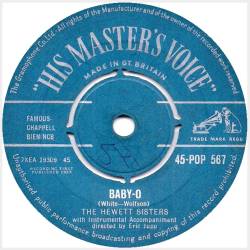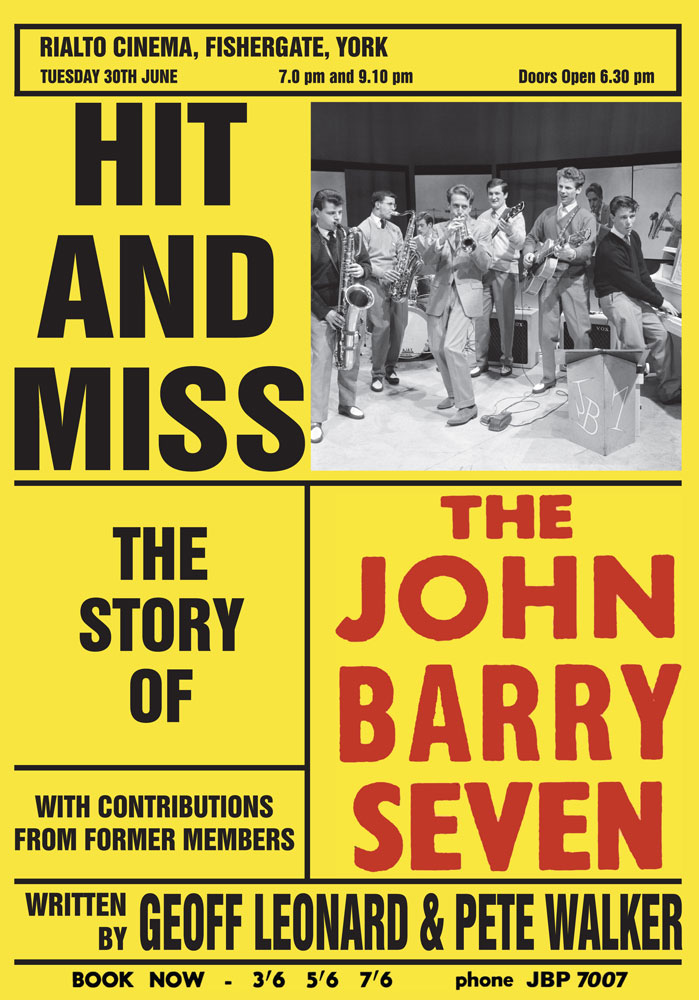
Oh Boy! Episodes

Webmaster
Lorem ipsum dolor sit amet, consectetuer adipiscing elit. Aenean commodo ligula eget dolor. Aenean massa. Cum sociis natoque penatibus et magnis dis.
Ink Spots, The
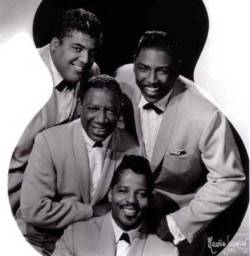 The Ink Spots played a large role in pioneering the black vocal group-harmony genre, helping to pave the way for the doo wop explosion of the '50s.
The Ink Spots played a large role in pioneering the black vocal group-harmony genre, helping to pave the way for the doo wop explosion of the '50s.
The quavering high tenor of Bill Kenny presaged hundreds of street-corner leads to come, and the sweet harmonies of Charlie Fuqua, Deek Watson, and bass "Hoppy" Jones (who died in 1944) backed him flawlessly.
Kenny's impeccable diction and Jones's deep drawl were both prominent on the Ink Spots' first smash on Decca in 1939, the sentimental "If I Didn't Care."
From then through 1951, the group was seldom absent from the pop charts, topping the lists with "We Three (My Echo, My Shadow, and Me)" (1940), "I'm Making Believe" and "Into Each Life Some Rain Must Fall" (both in 1944), and "The Gypsy" and "To Each His Own" (both in 1946).
Watson eventually split to form his own group, the Brown Dots, and appeared in numerous low-budget film musicals, while Kenny attempted a solo career, notching a solo hit in 1951 with the uplifting "It Is No Secret."
Countless groups masquerading as the Ink Spots have thrived across the nation since the '50s, and it isn't known which line-up appeared on Oh Boy!, though it's believed to have been led by Charlie Fuqua.
Gerry Dorsey
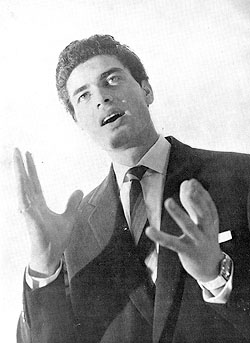 Arnold George Dorsey was born on May 2nd, 1936 in Madras, India and was raised in Leicester, England.
Arnold George Dorsey was born on May 2nd, 1936 in Madras, India and was raised in Leicester, England.
One day, while joking around with his friends, he was 'dared' to sing a song in a song contest. Not only did Arnold surprisingly win, but he received a standing ovation.
In 1966, Arnold's manager, Gordon Mills changed the singer's name from Gerry Dorsey, the stage name Arnold was using at the time, to 'Engelbert Humperdinck', after a 19th century Austrian composer famous for writing 'Hansel and Gretel'. Engelbert's rise to fame and stardom started when he sang 'Release Me' on the popular British TV show, 'Sunday Night at the London Palladium.'
Shortly after his instant success, he was given his own television show. Engelbert soon made hit after hit and In 1976, Engelbert once again proved to the world his superstar status with another huge hit which brought him to the top of the charts again.
Engelbert has won numerous Grammy awards including the Golden Globe Award for "Entertainer of the Year," and he has earned his star on the famous "Hollywood Walk of Fame."
In 2000, Engelbert's new album "At His Very Best," made it to the top 10 on the UK Official Charts and climbed up to number 5. Engelbert, who is a nonstop workaholic is continuously recording and currently enjoys touring all over the world.
Search
News
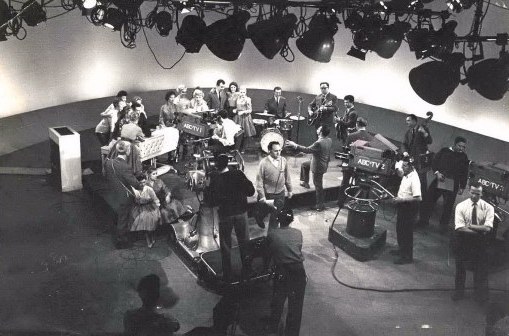
Comments
- Missing from these records is the period in 1959 when… 2020-01-01 11:49:39 Vince Taylor
- Again, this is for paperbacks, not eBooks. 2019-11-14 20:00:51 'Cuddly' Dudley
- For decades (almost 60 of 'em), I was trying to… 2019-08-13 09:32:57 Your comments
- You have missed a vernons girl off you're list my… 2019-02-13 18:14:23 Vernons Girls, The
- I would love to see this show as it has… 2019-01-29 22:47:44 Episode of Oh Boy! on 16mm film discovered, to be screened at BFI, London
NAVIGATE
THE STRINGBEAT YEARS
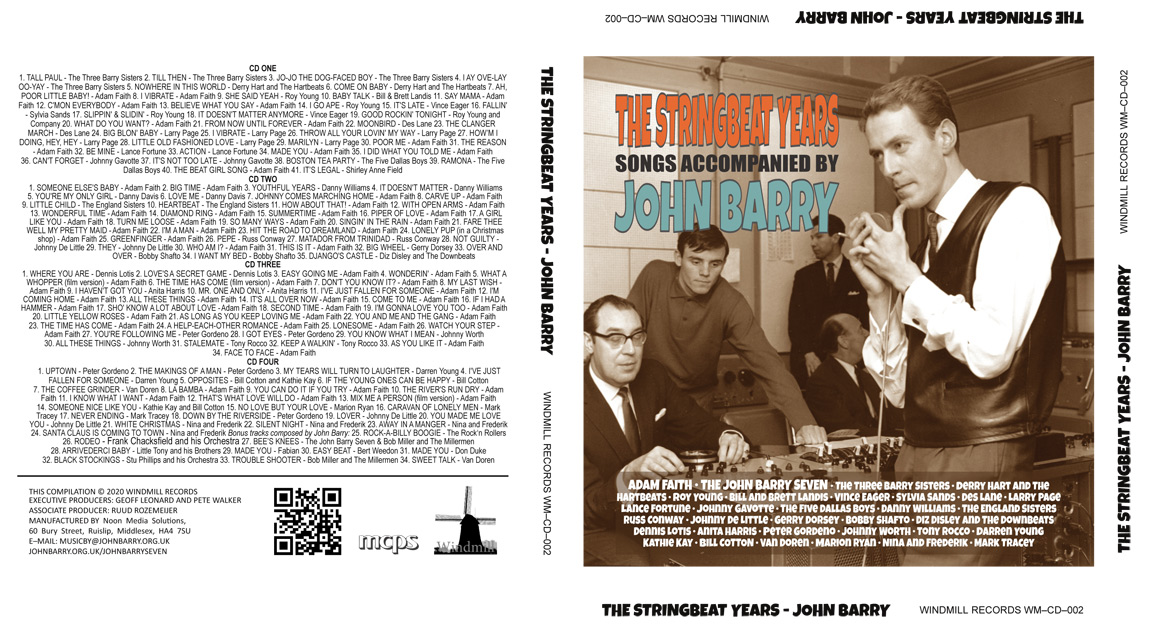
Now available!
The Stringbeat Years: Songs accompanied by John Barry
Now available, a 4-CD box-set comprising of 144 tracks, a 24-page booklet (replete with period photographs and comprehensive notes) and including ten bonus tracks (among them the CD debut of the first ever cover version of a John Barry instrumental composition).
Featuring – for the first time – the film versions of ‘Mix me a Person’, ‘The Time has Come’, and ‘What a Whopper’ (slightly shortened). There’s also an unique opportunity to hear the original version of ‘Ah, Poor Little Baby’, making its premiere appearance on CD.
The box-set is limited to 500 copies and is only £16.99 post-free in the UK, so don’t miss out! It is available direct from this website!
£16.99 post-free in the UK
£19.99 anywhere else in the world
Order now!
https://paypal.me/Geoffers007
Let us know if you aren't able to do this and we'll work out another way.
Track listing
HIT AND MISS: THE STORY OF THE JOHN BARRY SEVEN
Thoroughly and painstakingly researched over a number of years, it features contributions from several ex-members of the band and from friends and relatives of John Barry.
Comprising of over 360 pages, it is packed with an array of rare photos of the band, and the singers they often supported, as well as some unique images of memorabilia and documentation from that era; some never previously published, many more seldom seen.
Even if you are not necessarily a devotee of The John Barry Seven per se, the book offers a fascinating historical insight into the British music scene of the period and, more importantly, provides an essential read for anybody remotely interested in discovering more about John Barry’s formative career.
The book’s cover price is £30, but anybody ordering direct from us will receive a 33% discount, reducing the cost to £19.99.

